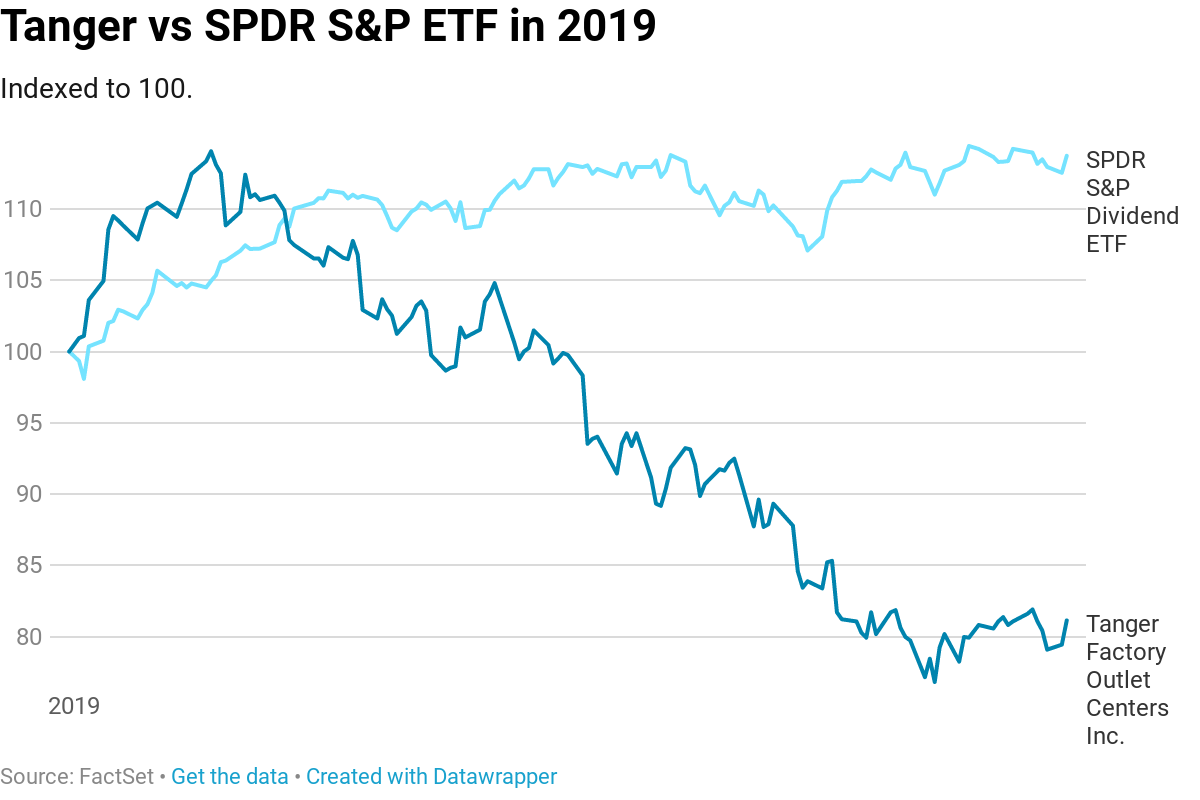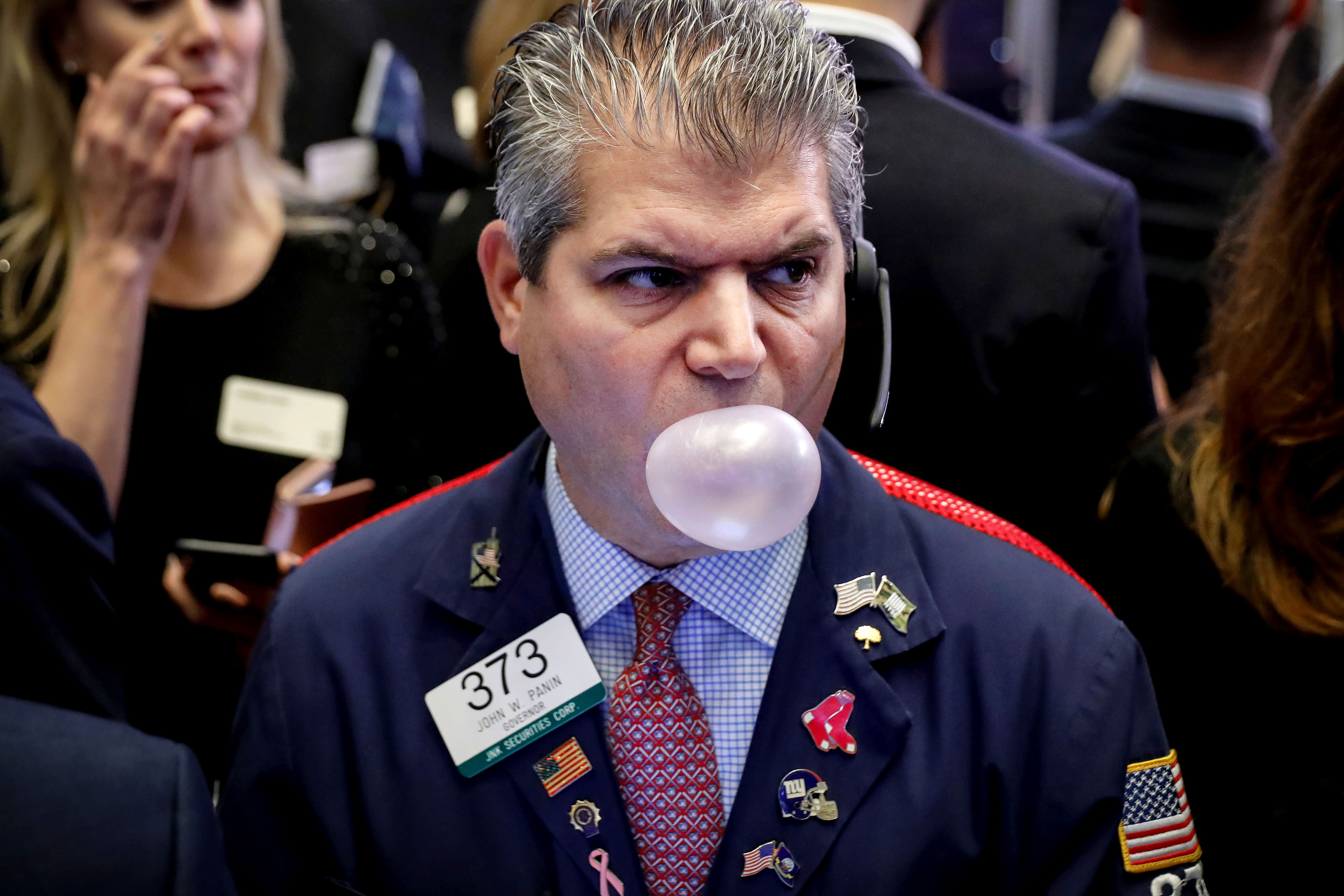A trader on the New York Stock Exchange.
Brendan McDermid | Reuters
Critics of passive investing argue it is inflating the prices of high-flying stocks such as Amazon and creating a bubble in those names. However, data compiled by Ned Davis Research shows the bubble may be forming elsewhere.
The firm found that real estate and utilities stocks are the two sectors that have benefited the most from the rise of passive investing vehicles including exchange-traded funds. ETFs hold more than 11% of the real estate sector and 9.8% of the utilities sector.
At the individual stock level, Tanger Factory Outlet Centers, a real estate company that invests in shopping centers, has had nearly 32% of its available stock, or float, taken over by ETFs, by far the most of any stock.
American States Water and California Water Service Group, meanwhile, have more than 23% of their float held by ETFs. Washington Real Estate Investment Trust has nearly 23% of its float held by ETFs. By comparison, Amazon and other big tech names have a much lower portion of their float held by ETFs.
Given which parts of the market have benefited the most from the rise of passive investing, investors should keep an eye on much smaller companies like Tanger for signs of a bubble forming.
“Tanger Factory Outlets is the real crowded theater, where investors might get trampled rushing for the exit,” said Will Geisdorf, ETF strategist at Ned Davis Research, in a note. “Tanger Factory Outlet Centers (SKT) is the poster child for the passive bubble,” he said.
Despite the massive ETF inflows it has experienced in recent years, Tanger has been a massively underperforming stock. The stock fell more than 20% in 2017 and 2018. This year, it is down more than 18%. By comparison, the SPDR S&P Dividend ETF (SDY) — which owns 13% of Tanger’s float — is up more than 13% year to date.

Geisdorf called Tanger the “outlet mall aristocrat” since it’s part of a group companies — SDY components — that has raised its dividend for at least 20 years. But that won’t last long, he says.
“Short sellers don’t think SKT will remain an aristocrat for long with 40% of its float held short,” Geisdorf said. If pressure on brick-and-mortar retailers intensifies, “SKT’s funds from operations will come under pressure, making it harder for the company to continue boosting its dividend.”
The rise of ETFs has given investors a way to invest in stocks at a lower cost than putting money into actively managed funds. It has also raised concern, however, of bubbles forming as market leadership has narrowed in recent years to just a few tech-related names.
Microsoft, Apple, Amazon and Facebook are some of the best performers in recent years and hold the most weight in the S&P 500. However, ETFs own only a fraction of these stocks. Around 5% of Microsoft and Amazon’s floating shares are owned by ETFs. Meanwhile, ETFs own 5.4% and 4.8% of Apple and Facebook, respectively.
Perhaps one of the reasons stocks like Tanger aren’t on investors’ radars is because they are not nearly as popular. Geisdorf points out that Tanger is not a top 10 holding in any ETF, so it doesn’t appear on most fund fact sheets.
Tanger is “the stealth king of the passive bubble,” Geisdorf said.

